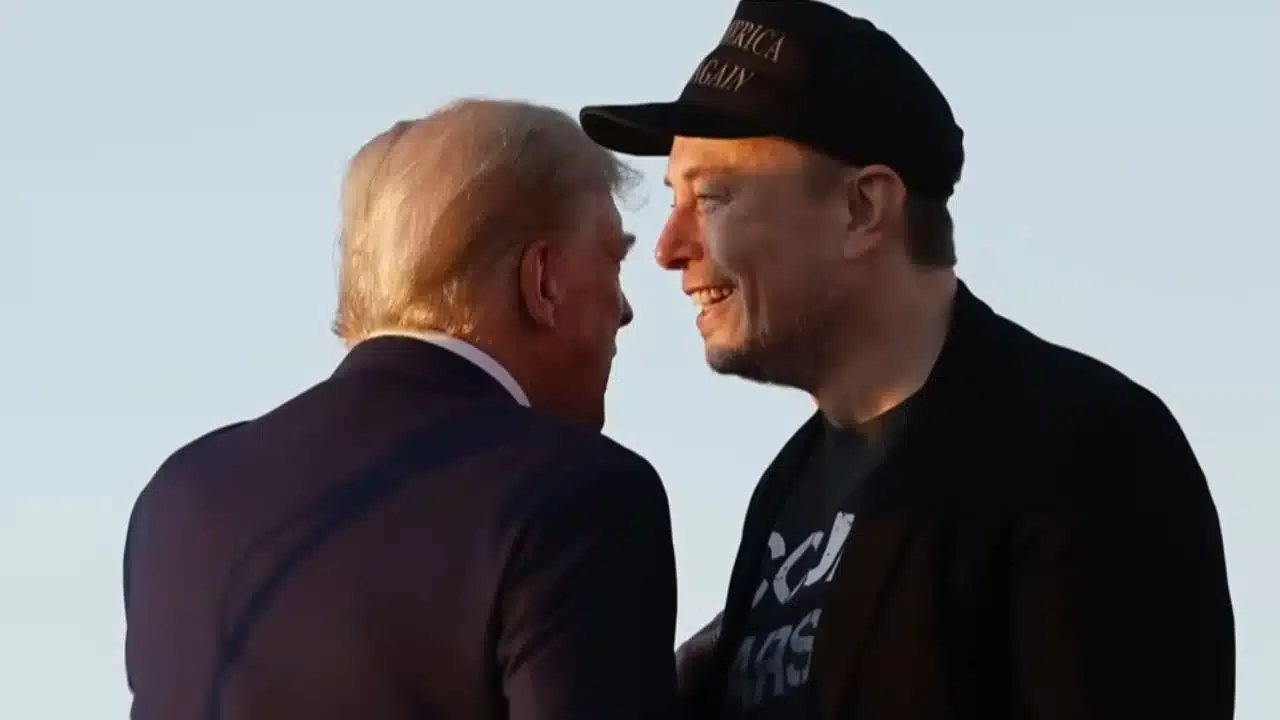Tesla shares skyrocketed 8% on Friday, pushing the electric vehicle (EV) maker’s market cap above the $1 trillion mark. The recent surge in Tesla’s stock price, which has rallied nearly 29% this week, comes in the wake of Donald Trump’s U.S. presidential election victory, sparking investor optimism that his return to the White House could benefit Tesla and its CEO, Elon Musk.
Tesla Surpasses Trillion-Dollar Milestone
Tesla’s value now places it back among the elite ranks of tech giants, a group that includes companies like Nvidia, Apple, Microsoft, Alphabet, Amazon, and Meta, with all but Meta valued above $2 trillion. This isn’t the first time Tesla has achieved such a milestone—its market cap first hit $1 trillion in October 2021. As of Tuesday’s close, Tesla’s market cap stood at $807.1 billion, marking a notable leap of over 20% within a week.
Investor Optimism Linked to Potential Policy Changes
The Trump administration’s return to office has fueled speculation that regulatory changes could favor Tesla’s growth in the EV sector. Elon Musk, who has been a vocal supporter of Trump’s campaign, contributed $130 million to pro-Trump efforts, potentially anticipating benefits for his company. Analysts suggest that a Trump administration could adopt a pro-business stance with reduced regulations, which could provide Tesla with unique advantages.
Dan Ives, an analyst with Wedbush Securities, noted that Trump’s policies could create a more competitive landscape for U.S.-based EV manufacturers by imposing higher tariffs on Chinese imports. Ives wrote, “Tesla has the scale and scope that is unmatched in the EV industry,” adding that trade restrictions combined with less regulatory oversight could help Tesla edge out lower-cost Chinese competitors like BYD and Nio.
Potential Cuts to EV Tax Credits
In recent statements, Trump indicated he may reduce the $7,500 federal electric vehicle tax credit, a measure that has historically supported EV sales in the U.S. While these credits have driven demand for Tesla’s cars, Tesla’s rapid growth and strong brand may mitigate potential setbacks from reduced federal support. Musk has previously expressed confidence in Tesla’s ability to expand its customer base even as subsidies decline, pointing to the company’s innovation and competitive advantages.
Strong Financial Performance in Q3
Tesla’s recent quarterly earnings further bolster its strong position. In its latest report, Tesla disclosed revenue of $25.18 billion and a net income of $2.17 billion for the third quarter. Musk predicted that “lower-cost vehicles” and advancements in autonomous driving technology would drive vehicle growth of 20% to 30% in 2025.
Plans for Federal Approval Process for Autonomous Vehicles
Musk has been advocating for a centralized federal process for approving autonomous vehicles, an initiative he aims to pursue with the Trump administration. Currently, regulatory approvals for autonomous vehicle technology vary state by state, which Musk argues presents a barrier to growth in the sector. Tesla has been developing self-driving technology for over a decade, aiming to compete with Alphabet’s Waymo, which has already launched robotaxi services in major cities across the U.S.
Future Prospects in a Shifting Market Landscape
As Tesla continues to innovate and expand, its renewed status as a trillion-dollar company signifies investor confidence in the brand’s long-term prospects, especially in a changing regulatory environment. Policy shifts that could impact the entire U.S. auto industry, along with Tesla’s commitment to EV and autonomous technology, will shape its path forward.
The Information is Collected from CNBC and Forbes.





































